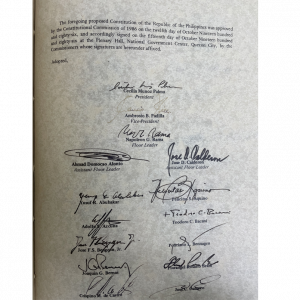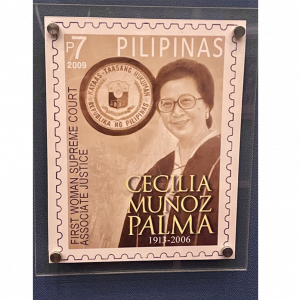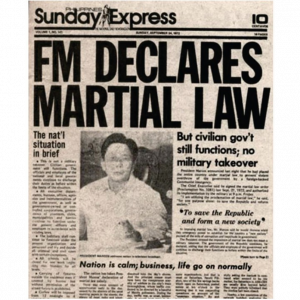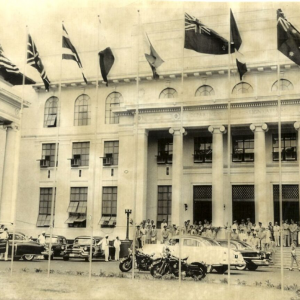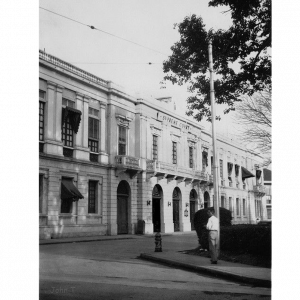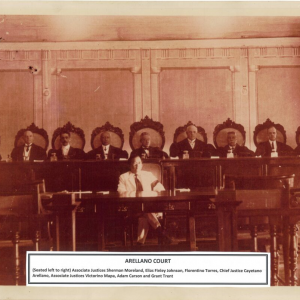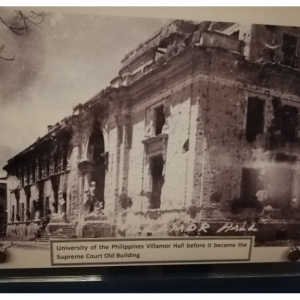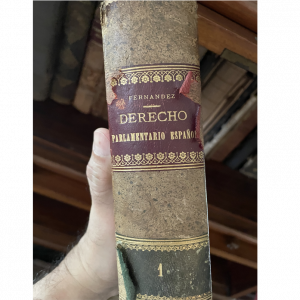SC Grants Writs of Amparo, Habeas Data in Favor of Environmental Advocates
February 15, 2024
The Supreme Court has ruled that environmental advocates Jonila F. Castro (Castro) and Jhed Reiyana C. Tamano (Tamano) are entitled to the remedies of writs of amparo and habeas data, as well as a temporary protection order (TPO).
In a Decision penned by Associate Justice Ramon Paul L. Hernando, the Supreme Court En Banc granted the petition filed by Castro and Tamano (collectively, petitioners) against Lieutenant Colonel Ronnel B. Dela Cruz and members of the 70th Infantry Battalion of the Philippine Army; Police Captain Carlito Buco and Members of the Philippine National Police, Bataan; National Security Council Assistant Director General Jonathan Malaya (ADG Malaya); National Task Force to End Local Communist Armed Conflict (NTF-ELCAC), and all others acting under their direction, instructions, and orders, (collectively, respondents). Petitioners prayed for the issuance of the writs of amparo and habeas data, with prayer for TPO, permanent protection order (PPO), and Production Order (PO).
Petitioners are volunteers for the Alyansa para sa Pagtatanggol sa Kabuhayan, Paninirahan, at Kalikasan ng Manila Bay (AKAP KA Manila Bay), a network of various environmental advocate groups that aim to advance the concerns of marginalized stakeholders along the Manila Bay Area. Petitioners were thus dispatched by AKAP KA Manila Bay to Orion, Bataan, to coordinate with communities affected by the Manila Bay reclamation projects.
Petitioners claim that while walking along Manrique Street, Orion, Bataan on September 2, 2023, at around 7:00 P.M., they were grabbed and pulled by men alighting from a sports utility vehicle. Inside the vehicle, the unidentified men confiscated and went through petitioners’ bags and belongings to check for guns, turned off their cellular phones, tied petitioners’ hands behind their backs, blindfolded them tightly, and wrapped their heads with duct tape to completely seal their vision.
From September 2 to 11, petitioners were brought to two locations where they were interrogated, with psychological torment and threats, forcing them to “surrender as rebels.” Eventually, they were made to handwrite their affidavits with a narrative prepared for them.
They were brought to the 70th Infantry Battalion Camp in Bulacan on September 12, where their personal details were taken, and they were given a medical check-up. They were introduced to the mayor of Angat, Bulacan and to Lieutenant Colonel Ronnel Dela Cruz (Lt. Col. Dela Cruz), who were to serve as witnesses to their affidavits. They were also introduced to a member of the National Intelligence Coordinating Agency and some more persons.
On September 13, 2023, petitioners were introduced to Atty. Joefer Baggay (Atty. Baggay) from the Public Attorney’s Office, to whom petitioners’ handwritten affidavits were handed, to be arranged and printed on his computer.
Petitioners, with Tamano’s parents, were made to swear to the printed affidavits before Atty. Baggay. Lt. Col. Dela Cruz then asked petitioners if they could show up at a press conference but they refused.
Petitioners were also introduced to one Emjay Chico of the NTF-ELCAC to convince them to agree to the press conference to disprove their abduction.
On September 14, 2023, petitioners met with three representatives from the Commission on Human Rights (CHR). The latter sought to confirm petitioners’ “voluntary surrender” and the veracity of their sworn affidavits. Later, petitioners decided to hold the press conference to reveal the truth.
On September 19, 2023, petitioners proceeded with the press conference organized by the NTF-ELCAC, but abandoned the plans made for them and instead revealed in public that they were abducted. They belied the version of respondents that they “surrendered” and stated categorically that they were forcibly taken by the military and made to sign their affidavits.
Petitioners were then turned over to the CHR’s custody before they were released to their families and colleagues.
In an ABS-CBN interview, ADG Malaya said that their Office would “expose all information they have on [Castro] and [Tamano] and that “they may be charged [of perjury] in relation to their alleged execution of an affidavit while in custody of the 70th [Infantry Battalion].”
Petitioners allege that to date, threats to their lives, freedom, and security remain.
In granting their petition, the Court found that petitioners were able to prove by substantial evidence the allegations in their petition meriting the protection of their freedoms through the writs of amparo and habeas data.
Emphasizing that in a petition for writ of amparo, the court is allowed a certain degree of leniency or flexibility in the application of the evidentiary rules by adopting the totality of evidence standard, the Court reiterated its ruling in the 2009 case of Razon, Jr. v. Tagitis that the fair and proper rule is to consider all the pieces of evidence adduced in their totality, and to consider any evidence otherwise inadmissible under usual rules to be admissible if it is consistent with the admissible evidence adduced.
Thus, “the rules are reduced to the most basic test of reason, i.e., to the relevance of the evidence to the issue at hand and its consistency with all other pieces of adduced evidence.” Even hearsay testimony or circumstantial evidence can be admitted and appreciated if it satisfies this basic minimum test, held the Court.
In the present case, the Court found that elements of enforced disappearance were present, specifically that petitioners were forcibly taken on September 2, 2023, as evidenced by: (1) the affidavit by a member of KARAPATAN Gitnang Luzon as to the accounts of witnesses to the abduction in plain sight; (2) petitioners’ attestation that they left their footwear during their struggle against their captors; and (3) photos of petitioners’ footwear left at the scene of the abduction, affirming petitioners’ attestation.
It was also established that Rosielie, Castro’s mother, tried her utmost to locate her then missing daughter and coordinate with one Justin Gutierrez, a person who allegedly introduced himself to Rosielie as a member of the military, and with the police authorities in Orion Municipal Police Station, but received no positive response from them.
As to the writ of habeas data, the Court found ADG Malaya’s statements during the ABS-CBN interview announcing to “expose all information they have on [Castro] and [Tamano] and that “they may be charged [of perjury] in relation to their alleged execution of an affidavit while in custody of the 70th Infantry Battalion” is already an open and express threat to petitioners’ right to life, liberty, and security publicly verbalized by government official admittedly engaged in the gathering, collecting, and storing of data and information against petitioners.
After a judicious review of the records, the Court concluded that “there was an established violation or threat to the life, liberty, or security of petitioners by respondents. The writs are called to be issued for reasons so obvious on the mere face of the Petition.”
Respondents and all the persons and entities acting and operating under their directions, instructions, and orders were thus directed by the Court to comply with the rules on return under Sec. 9 of the Rule on the Writ of Amparo and Sec. 10 of the Rule on the Writ of Habeas Data.
A TPO was also issued by the Court motu proprio as an interim relief against respondents and all the persons and entities acting and operating under their directions, instructions and orders, prohibiting them from entering within a radius of one kilometer from the persons, places of residence, school, work, or present locations, of petitioners, as well as those of their immediate families.
The Court of Appeals is further directed to:
- Conduct a summary hearing on the petition and the other interim relief sought by petitioners, e., Production Order, within five days from receipt of notice of the Court’s Decision;
- After hearing, decide the petition and the other interim relief sought by petitioners, within five days from the time it is submitted for decision; and
- Furnish the Court with a copy of the decision on the petition and the other interim relief sought by petitioners within five days from its promulgation.
(Courtesy of the Supreme Court Public Information Office)
FULL TEXT of G.R. No. 269249, In the Matter of the Issuance of the Writ of Amparo and Habeas Data for Jonila F. Castro and Jhed Reiyana C. Tamano v. Dela Cruz, et al. (October 24, 2023) at: https://sc.judiciary.gov.ph/269249-in-the-matter-of-the-issuance-of-the-writ-of-amparo-and-habeas-data-for-jonila-f-castro-and-jhed-reiyana-c-tamayo-and-their-families-vs-lieutenant-colonel-ronnel-b-dela-cruz-and-members-fo/













